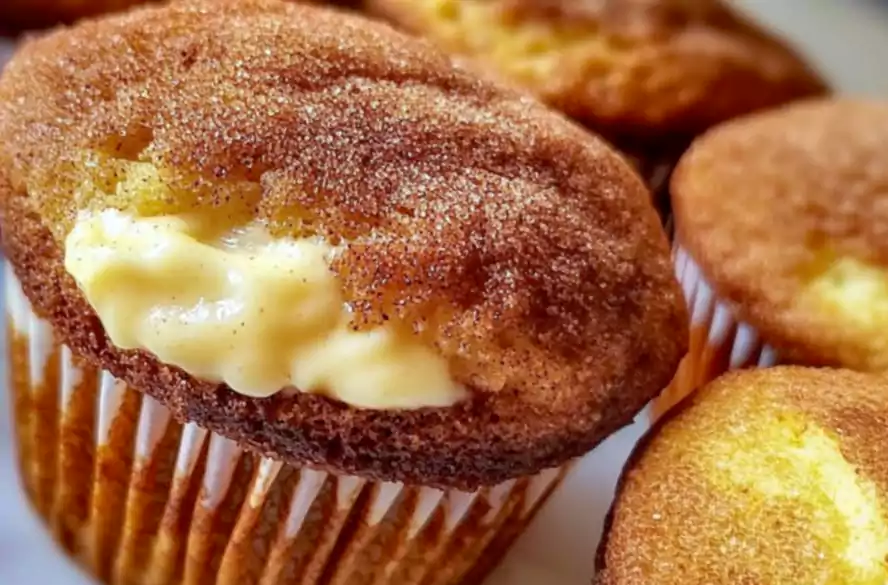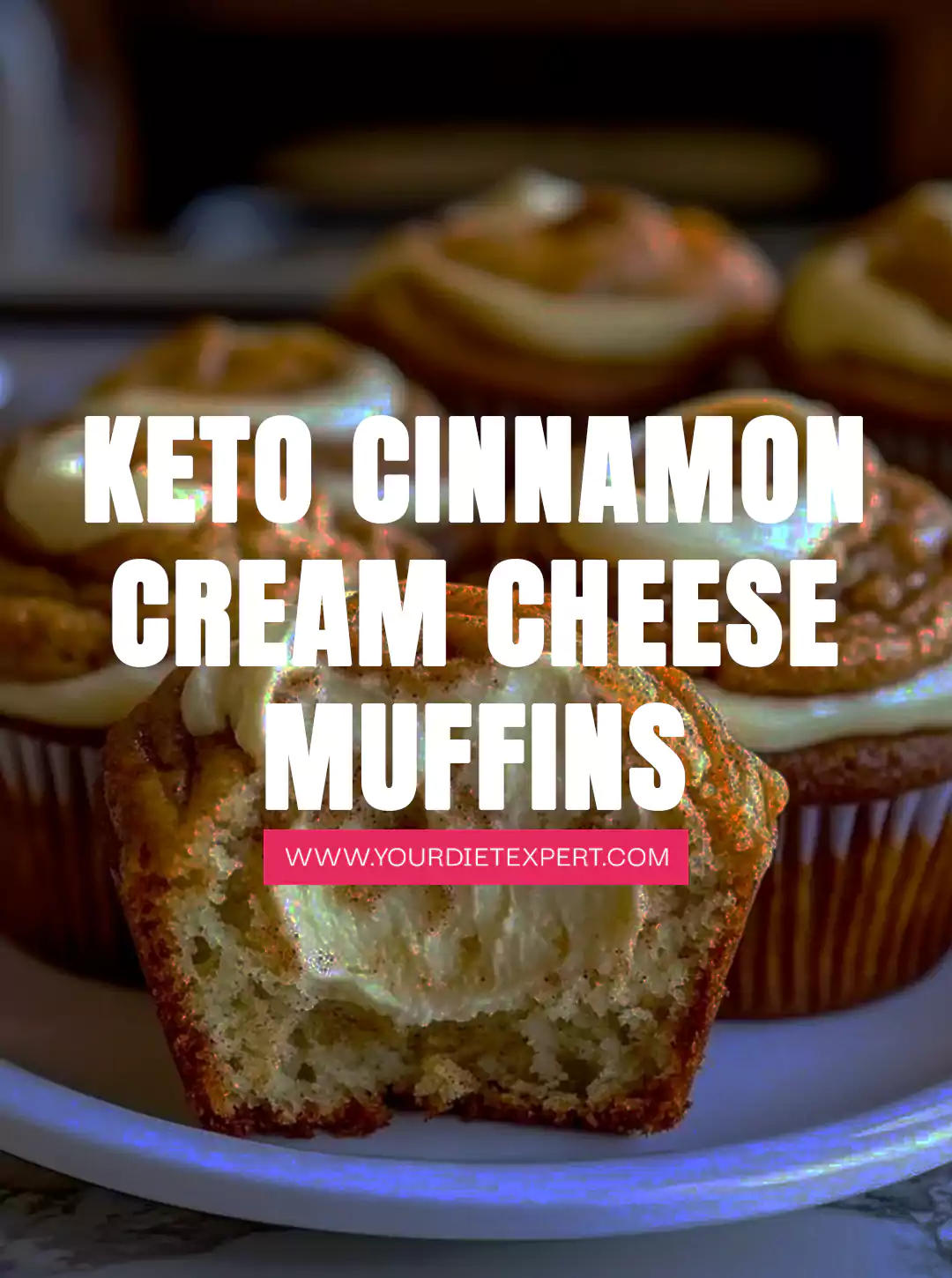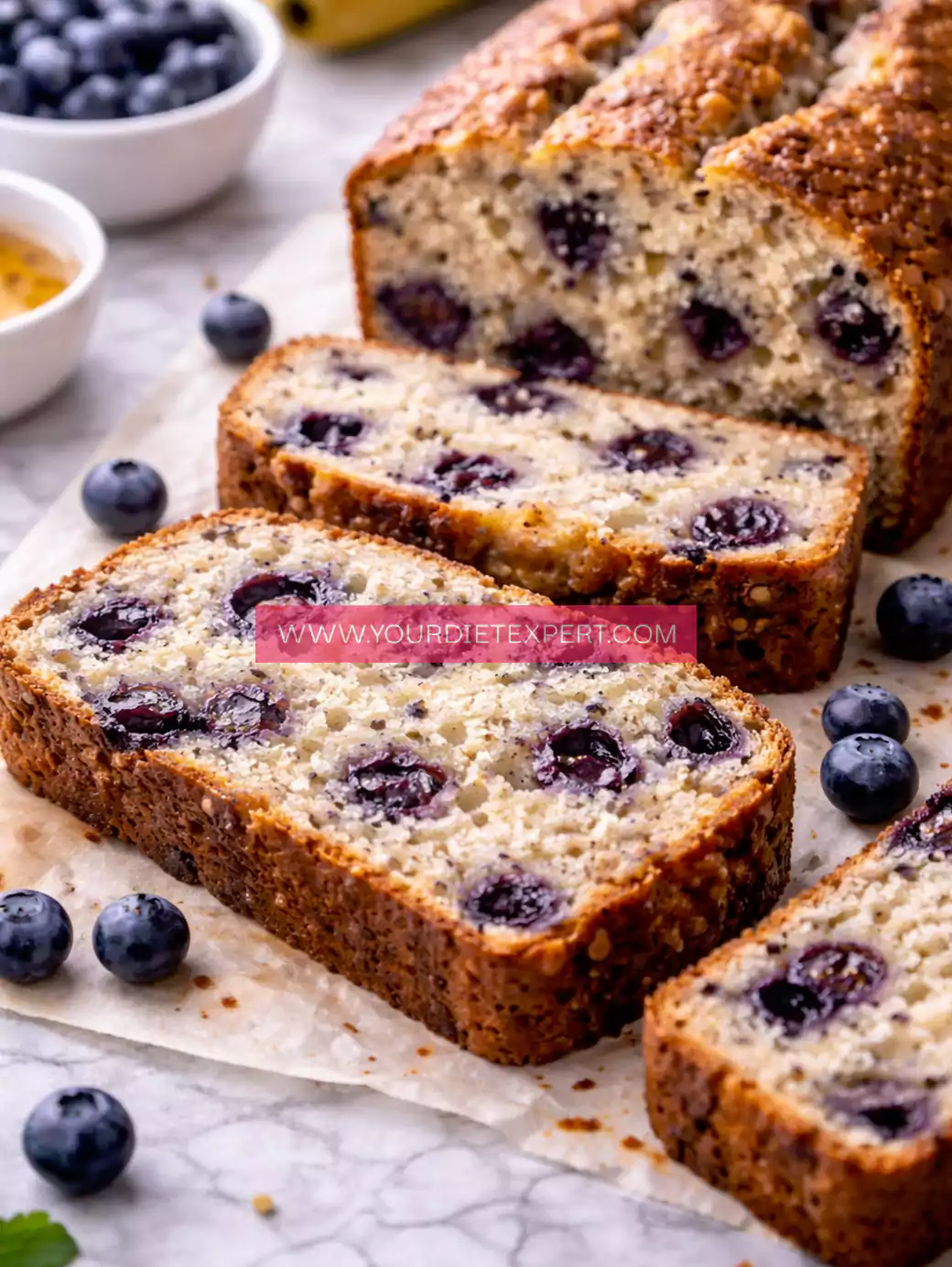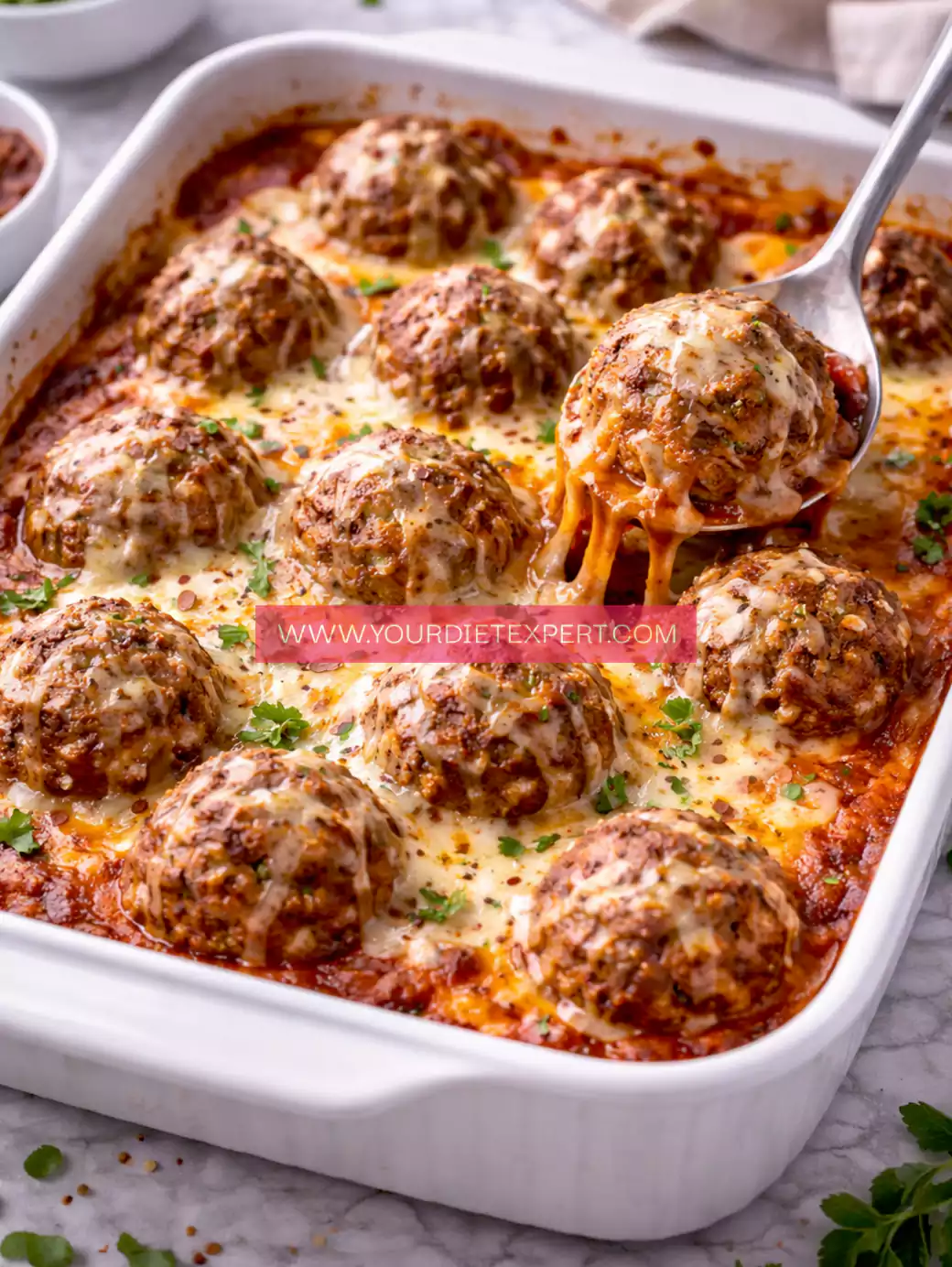Warm introduction — Keto Cinnamon Cream Cheese Muffins
There’s nothing like the smell of warm cinnamon drifting through the house in the morning — which is why I started making these Keto Cinnamon Cream Cheese Muffins every weekend. Soft, slightly tangy cream-cheese pockets meet a spiced almond-flour muffin for a sugar-free breakfast (or snack) that’s perfect for healthy eaters, keto/low-carb followers, and fitness lovers who want something satisfying without the sugar crash.
What makes these Keto Cinnamon Cream Cheese Muffins stand out
- Cinnamon + cream-cheese pockets: That molten cream-cheese swirl inside each muffin adds a rich contrast to the gently spiced almond base — it’s textural magic.
- Time-smart baking: Batter comes together in one bowl in 10 minutes and bakes in about 20 — great for meal prep or busy mornings.
- Dietally thoughtful: Low in net carbs and high in healthy fats and moderate protein, these muffins keep you full and blood sugar steady.
- Versatile & freezer-friendly: Make a batch, freeze extras, and reheat for quick breakfasts or post-workout snacks.
Personal blogger note
When I first baked these, I ate one warm and nearly dropped the rest in the freezer because they were gone so fast. Now I double the batch — one for the week, one for sharing.
Equipment (and why I use each)
- Muffin tin (12-cup) — ensures uniform muffin shape and even baking; I prefer using liners for easy release.
- Mixing bowls (2) — one for dry ingredients, one for wet; separating avoids overmixing and keeps the crumb tender.
- Hand whisk or electric mixer — to get the eggs and erythritol silky and the batter well-incorporated. Either works; the mixer is faster.
- Rubber spatula — for folding without deflating the batter and scraping every bit into the tin.
- Measuring cups/spoons & kitchen scale — keto baking rewards accuracy; a scale gives consistent results.
- Small bowl + spoon — to mix the cream-cheese swirl so dollops are smooth.
- Cooling rack — to cool muffins quickly and avoid sogginess on the bottom.
Ingredients with substitutions (why each matters)
Yields: 12 muffins
Dry / batter
- 240 g almond flour — the low-carb base that keeps texture moist and nutty.
Swap: hazelnut flour for a nuttier flavor (texture will vary). - 120 g erythritol (total; 80 g in batter, 40 g in cream cheese) — sugar replacement that keeps sweetness without digestible carbs.
Swap: monk-fruit blend (measure by sweetness equivalence). - 6 g baking powder (≈1.5 tsp) — gives a gentle rise for a lighter muffin.
- 6 g ground cinnamon (≈2 tsp) — flavor backbone; use extra if you love cinnamon.
- 3 g fine salt — balances sweetness and brings depth.
Wet
- 150 g eggs (≈3 large eggs) — bind and provide structure and protein.
Swap: 2 whole eggs + 2 egg whites for lower fat (texture changes). - 100 g melted butter — rich fat for moistness and flavor.
Swap: coconut oil for dairy-free (adds a mild coconut note). - 30 g unsweetened almond milk — loosens batter if needed; helps batter spread evenly.
- 4 g vanilla extract (≈1 tsp) — aroma and balance.
Cream-cheese swirl (pockets)
- 170 g full-fat cream cheese — creates those creamy, tangy pockets inside each muffin.
Swap: Neufchâtel for lighter option or dairy-free cream cheese if avoiding dairy (texture slightly looser). - 40 g erythritol (included in total above) — lightly sweetens the swirl.
- 1 egg yolk (from the 3 eggs above) — stabilizes the swirl (keeps pockets silky).
Why these matter: Almond flour keeps the recipe low-carb and dense in healthy fats while eggs and cream cheese add protein and creaminess. Erythritol provides sweetness without digestible carbs (net-carb calculation below excludes erythritol).
Step-by-step cooking process — friend-to-friend guidance
I detail each step so nothing is mixed too early or overworked. Follow these in order for the best texture.
Before you start
- Preheat oven to 175°C / 350°F. Line a 12-cup muffin tin with paper liners or grease the cups well.
- Let cream cheese soften at room temperature (about 20 minutes) so it whips smooth.
Make the cream-cheese swirl
- In a small bowl, beat 170 g cream cheese with 40 g erythritol and the egg yolk until smooth. Keep refrigerated briefly while you make the batter if it becomes too soft.
Dry ingredients
- In a medium bowl, whisk 240 g almond flour, 6 g baking powder, 6 g ground cinnamon, and 3 g salt. Whisking breaks clumps and evenly distributes the leavener and spices.
Wet ingredients
- In a separate large bowl, whisk 150 g eggs with 80 g erythritol until slightly thickened and paler (30–45 seconds by hand; 15–20 with a mixer). Then whisk in 100 g melted butter, 30 g almond milk, and 4 g vanilla until smooth.
Combine batter
- Pour the dry mix into the wet and fold gently with a spatula until just combined. Do not overmix — a few streaks are fine. Batter should be thick but scoopable; if too stiff, add 1 tablespoon almond milk at a time (max 2 tbsp).
Fill muffin tin and swirl
- Spoon batter evenly into 12 muffin cups, filling each about ⅔ full.
- Drop about 1 tbsp of the cream-cheese mixture into the center of each muffin. Then, using a small knife or a skewer, gently swirl the cream cheese in a circular motion into the top of each muffin — create pockets but avoid fully mixing it in.
Bake
- Bake at 175°C / 350°F for 18–22 minutes, or until tops are golden and a toothpick in the muffin’s edge (not the cream center) comes out with a few moist crumbs. Rotate midway if your oven has hot spots.

Cool & serve
- Let muffins rest in the tin for 8–10 minutes, then transfer to a cooling rack. Cooling helps the crumb set and improves sliceability. Serve warm or at room temperature.

Health & nutrition insights
- These muffins are low in net carbs (~3.1 g per muffin) and provide a balance of fats and protein that helps keep you full longer — ideal for keto or low-carb plans.
- The almond-flour base delivers healthy monounsaturated fats and some fiber.
- Using erythritol avoids blood-sugar spikes for most people (note: individual responses vary).
- For extra protein, serve with Greek yogurt or a scoop of unflavored collagen in your morning coffee.
Nutrition breakdown (calculated for the recipe as written — 12 muffins)
I used the ingredient weights above and standard nutrition values to calculate totals. Erythritol is treated as zero digestible carbs (common practice). These are estimates and will vary by brand and exact ingredient choices.
Whole batch (12 muffins) — estimated totals:
- Calories: ≈ 2,938.92 kcal
- Protein: ≈ 82.25 g
- Fat: ≈ 273.73 g
- Total carbs: ≈ 67.06 g
- Fiber: ≈ 29.83 g
- Net carbs (whole batch): ≈ 37.24 g
Per muffin (1 of 12) — estimated (rounded):
- Calories: ≈ 245 kcal
- Protein: ≈ 6.85 g
- Fat: ≈ 22.81 g
- Total carbs: ≈ 5.59 g
- Fiber: ≈ 2.49 g
- Net carbs: ≈ 3.10 g
Note: if you want, I can re-calculate using your preferred brands or replace erythritol with another sweetener for brand-specific macros.
Serving + pairing ideas
- Morning: pair with black coffee or a matcha latte for a low-carb breakfast.
- Snack: add a smear of nut butter for extra protein and satiety.
- Dessert: serve warm with a spoonful of unsweetened whipped cream for a cozy treat.
- Occasion: perfect for meal-prep, busy school mornings, or a picnic where guests want low-carb options.
Storage & meal-prep tips
- Fridge: store in an airtight container for 4–5 days. Warm briefly before eating to revive the cream center.
- Freeze: individually wrap and freeze up to 3 months. Thaw overnight in fridge and reheat 6–8 minutes in a low oven (160°C / 320°F) to refresh.
- Reheat: oven or toaster oven gives the best texture; microwave will soften the cream center quickly (use short bursts).
FAQ — what readers often ask
Q: Can I make these dairy-free?
A: Partially — swap melted butter for coconut oil and use a dairy-free cream-cheese alternative. Texture will change (cream pockets may be looser).
Q: Can I use fewer eggs or egg substitute?
A: Eggs provide structure; using fewer will make muffins denser. For egg swaps, a commercial egg replacer or flax egg may work but expect texture differences.
Q: Are these suitable for diabetics?
A: They’re lower in net carbs than regular muffins, but individuals should monitor blood glucose and portion size — responses vary.
Q: Can I add a streusel or nuts on top?
A: Yes — add chopped pecans or a cinnamon-erythritol streusel for crunch, but that will increase calories and fat (and slightly change net carbs depending on mix-ins).
Q: Can I reduce sweetness?
A: Absolutely — reduce erythritol in the batter by 10–20% to suit your taste. Because erythritol doesn’t caramelize like sugar, texture remains similar.
Recipe Details
- Prep Time: 15 minutes (including cream-cheese prep)
- Cook Time: 18–22 minutes
- Total Time: ~35–40 minutes (including resting)
- Course: Breakfast / Snack / Dessert
- Cuisine: Healthy / Keto / Low-Carb
- Servings: 12 muffins
- Calories: ≈ 245 kcal per muffin
Closing note
These Keto Cinnamon Cream Cheese Muffins are my go-to when I want a cozy, cinnamon-forward breakfast that won’t spike my blood sugar. They’re easy, freezer-friendly, and honestly addictive in the best way. Give them a try this weekend — I think you’ll keep coming back for more.

Keto Cinnamon Cream Cheese Muffins Recipe
Ingredients
Method
- Preheat oven to 175°C / 350°F and line a 12-cup muffin tin. Let cream cheese soften.
- Mix cream-cheese swirl: beat 170 g cream cheese + 40 g erythritol + egg yolk until smooth; refrigerate briefly.
- Whisk dry ingredients: almond flour + baking powder + cinnamon + salt.
- Whisk eggs + 80 g erythritol until slightly thickened; add melted butter, almond milk, and vanilla.
- Fold dry into wet until just combined (do not overmix). Batter should be thick but scoopable.
- Fill 12 muffin cups ~⅔ full. Drop ~1 tbsp cream-cheese mixture into each, then gently swirl with a skewer.
- Bake 18–22 minutes until golden. Cool 8–10 minutes in tin; transfer to rack. Enjoy warm or room temperature.



Leave a Reply